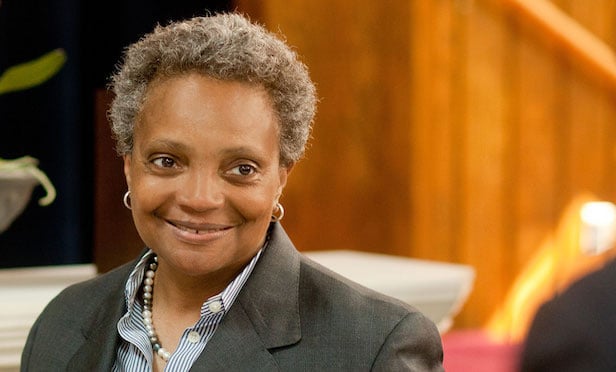CHICAGO—Mayor Lori E. Lightfoot announced last week initial steps to address an $838-million 2020 city budget gap. Admitting that it will be "a steep hill to climb," the mayor in her State of The City address highlighted a number of steps to close the gap, including a city-wide hiring freeze.
"Today I am shining a light on Chicago's current financial conditions. I want residents to know the full extent of the city's finances and the path we plan to take to address our long-standing fiscal challenges," said Mayor Lightfoot. "The 2020 Corporate Fund budget shortfall will be $838 million. And while I recognize this is a steep hill to climb, I am committing to residents that, together, we will do the hard work of finding sustainable solutions that will lead our city to long-term financial stability."
The mayor in her address outlined her administration's efforts to identify more than $100 million in savings and efficiencies over the first 100 days and the work that remains to balance next year's budget. These efficiencies include the elimination of $1.4 billion in short term borrowing, a review of departmental use of overtime and absenteeism, and implementation of a citywide hiring freeze that will allow the city to work with departments to identify additional efficiencies in the coming weeks.
The city has begun to implement structural reforms to drive down costs and improve financial stability, including: a complete overhaul of the $100-million workers' compensation program; release of a new healthcare RFP to revisit competitive costs for the $471-million-a-year program; changes to refinance old debt for better rates; and the creation of the first citywide enterprise risk management system, led by Chief Risk Officer Tamika Puckett, which will seek to cut down on the high cost of legal settlements.
Mayor Lightfoot also noted that the city secured legislative approvals to authorize a casino in Chicago, which would generate a dedicated revenue source to finance underfunded police and fire pensions. The administration is now committed to working with state legislators on the taxation structure to ensure a Chicago casino will represent a structural solution for long-term sustainability.
The 2020 budget forecast reveals that The Corporate Fund—the city's operating fund—represented more than $3.8 billion, or more than 34% of the city's $10.67-billion budget in 2019. The forecast reveals that in 2020, the pension, personnel and healthcare costs that make up a significant part of the Corporate Fund expenses will comprise 70% of the budget shortfall, while debt and legal settlement costs make up an additional 22% of the structural deficit.
Residents can comment on the budget through an online survey (Chicago.gov/2020Budget) and/or through a series of Town Halls to be held in the coming weeks:
• Sept. 4th – Copernicus Center – 5216 W. Lawrence Ave – 6 p.m. to 8 p.m.
• Sept. 14th – Roberto Clemente High School 1147 N. Western Ave – 9 a.m. to 11 a.m.
• Sept. 19th – Southeast United Methodist and Community Center – 11731 S. Avenue O – 6 p.m. to 8 p.m.
• Sept. 25th – Youth-Focused Townhall – Lindblom Math and Science Academy – 6130 S. Wolcott Ave – 6 p.m. to 8 p.m.
© Touchpoint Markets, All Rights Reserved. Request academic re-use from www.copyright.com. All other uses, submit a request to [email protected]. For more inforrmation visit Asset & Logo Licensing.








